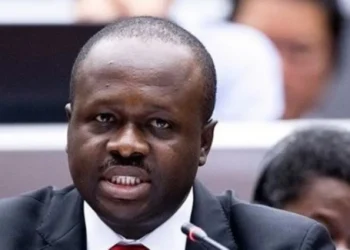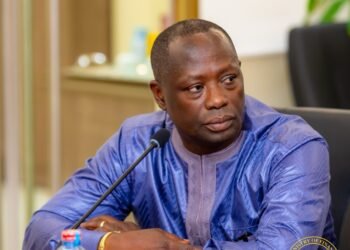In an era where social media platforms serve as the primary channels for communication, the rapid dissemination of information has transformed the landscape of public discourse to online insults.
While the internet has democratized speech, it has also given rise to a troubling phenomenon: the widespread use of online insults and harassment directed at high-profile individuals, including politicians, celebrities, and public figures.
This trend not only undermines civil discourse but also poses significant risks to the mental health and safety of those targeted.
Therefore, it is crucial for the presidency to take decisive action by introducing legislation aimed at curbing online insults, promoting a healthier digital environment, and protecting the dignity of individuals in the public eye.
Ghanaian actor Kwaku Manu has urged President John Dramani Mahama to introduce legislation to curb the growing trend of online insults targeting high-profile individuals, including the President himself, Asantehene Otumfuo Osei Tutu II, and prominent businessmen like Dr. Osei Kwame Despite and Ibrahim Mahama.
In a video shared on Instagram, Manu expressed concern over the culture of disrespect on social media, where some individuals verbally attack national and influential figures without regard. He proposed a law imposing a one-year jail sentence for each insult directed at public figures.
“I’m pleading with President Mahama to enact a law that anyone one who sits on social media, talks with authoritatively in a disrespectful manner against he, the President, and other influential figures, using unprintable words should be dealt with legally. Most times, these recalcitrant are just ordinary people with no pedigree but will insult very influential people including the Asantehene, Otumfuo Osei Tutu and very rich business men like Ibrahim Mahama, Kwame Despite, Ofori Sarpong.
“I mean these individuals who have established businesses and provided employment for many will just be disrespected because someone has the means to own a camera and will come online and just insult them.”
Kwaku Manu

Kwaku Manu noted that the uncouth behaviour shows the culprits lacked proper home training and need to be dealt with accordingly.
“I just wish there was this law to deal with them. People can just get up, come to social media and insult a distinguished pastor, important figures in our society for no apparent reason. Papa Mahama, let the law jail them one year to bring sanity.
“This disrespectful character should be displayed in their homes where they lacked good training and not in the public space, dragging the reputation of prominent figures for no reason.”
Kwaku Manu
The past decade has witnessed an exponential increase in online insults, often fueled by anonymity and the viral nature of social media. High-profile individuals, due to their visibility, are particularly vulnerable to this type of abuse.
Research indicates that public figures often face a barrage of derogatory comments, threats, and slanderous remarks, which have devastating effects on their mental health and public image.
For instance, studies show that a significant number of politicians report experiencing anxiety and depression as a result of online harassment. This toxic environment not only affects the individuals targeted but also distorts public perception and discourages meaningful engagement in political and social issues.
Need to Act Against Rising Online Insults Trend

While freedom of speech is a cornerstone of democratic societies, it is essential to recognize that this freedom comes with responsibilities. The presidency has a vital role in safeguarding the rights of individuals while also upholding the principle of free expression.
Legislation aimed at curbing online insults could take various forms, including the establishment of clear guidelines defining acceptable online behavior, the implementation of penalties for those who engage in harassment, and the promotion of educational campaigns that encourage respectful discourse.
Such legislation would serve multiple purposes. It would deter individuals from engaging in harmful behavior, knowing that there are consequences for their actions. It would create a safer online environment for public figures, allowing them to engage with their constituents and fans without the fear of personal attacks.
It would also foster a cultural shift towards more respectful and constructive dialogue, ultimately benefiting society as a whole.
However, critics of proposed legislation argue that it threatens free speech and could lead to censorship. However, it is vital to distinguish between free expression and harmful speech.

Laws that target online insults are not designed to suppress legitimate discourse but rather to protect individuals from malicious attacks that serve no constructive purpose.
Furthermore, successful models from other countries, such as the United Kingdom’s approach to online hate speech, demonstrate that it is possible to balance the right to free speech with the need for protection against harassment.
The growing trend of online insults targeting high-profile individuals represents a significant challenge to the integrity of public discourse and the mental well-being of those in the public eye.
The presidency must take the lead in introducing legislation that addresses this issue, promoting a culture of respect and accountability in digital communication.
By doing so, the dignity of individuals are protected while fostering a more constructive and inclusive online environment. As the complexities of the digital age is navigated, it is imperative that the health of public discourse and the individuals who contribute to it are prioritized.
READ ALSO: IMANI: Ghana’s Green Businesses Are Being Held Back



















